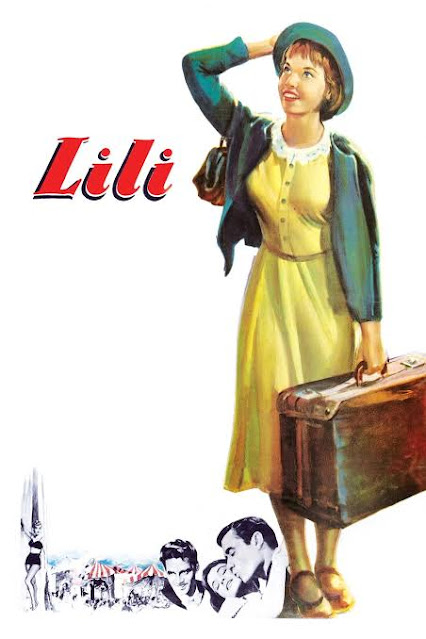When she learns her only family has passed away, orphan Lili (Leslie Caron) stumbles into a nearby circus, where she finds solace in a company of puppets operated by the distant Paul (Mel Ferrer).
TW: Some discussion of suicide.
I watched this movie years ago. I had seen Leslie Caron in An American in Paris and developed a crush. I wanted to see what else she had done.
I ended up watching Lili and Gigi - not because they rhymed, they were the titles I could get my mitts on.
I do not recall much about Gigi beyond it being long, and Caron’s bizarre Eliza Doolittle accent.
Lili was stickier. Something about this strange story of a young girl talking to puppets made it stick in the brain.
Rewatching it, I was amazed at how dark it is. And the first act, leading up to the introduction of the puppets, is a nightmare.
The film opens with our sixteen-year-old heroine being threatened with sexual enslavement. She then becomes infatuated with someone who clearly does not care about her.
Trapped in a circus, with no friends or family to fall back upon, she is at her lowest point.
She leans against the ladder to the trapeze.
The score builds as she looks up at the towering structure, exaggerated by a matte painting and a low angle.
She even begins climbing the ladder.
At this place, when Lili is at her lowest, that she (and the viewer) are introduced to the puppets.
The puppets draw Lili out of her shell, until she is able to sing.
A crowd is drawn by the spectacle.
Thus the film's strange, disturbing overlapping impulses are brought together: on one level, these interactions act as a form of therapy and comfort for the young girl. But they are orchestrated by a man who only seems capable of interacting with her through the puppets - he knows how to push her buttons, and seems to be incapable of not trying to hurt her.
There is a selfishness to Paul's relationship, a masochism to his affection and empathy that frame Lili's interactions with his creations.
And then there is the fact that Lili's interactions with the puppets are a show, a spectacle for public consumption.
The show is just a series of improvisations, in which Lili and the puppets discuss whatever has been troubling her. And that mix of fantasy and real emotion is the selling point of the show.
The film does not seem to recognise the perversity of its central conceit, and the mise-en-scene only seems to reinforce it.
Made on a modest budget, Lili takes place in the (clearly stage-bound) confines of the carnival. Lili’s horizons feel small.
Her one solace is the nightly conversations with the puppets.
Paul is unable to express himself empathetically without the puppets as a vehicle.
Despite knowing he is there, Lili is still able to separate him from his creations, and treats them as separate entities.
Even the purity of these conversations is undermined by a sense of exploitation and routine - she even has to wear the same clothes.
She is trapped in a space of childlike innocence and trauma.
Leslie Caron’s performance is a bit limited. She conveys a childlike sense of incomprehension (her big eyes are a special effect by themselves), but the story is so fable-like, she does not get a lot of room to expand.
A strange, unsettling picture, Lili is worth a watch. It might not succeed as a romance, but as a masochistic psychodrama?
You be the judge.
If you enjoy something I wrote, and want to support my writing, here’s a link for tips!

No comments:
Post a Comment